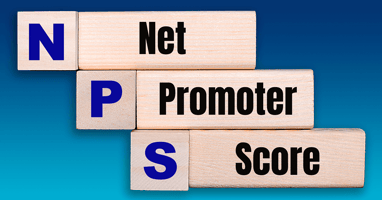Net promoter scores (NPS) are a popular method used to measure customer experience with a company’s...
What Are Key Purchasing Criteria?
Key purchasing criteria are the factors that potential customers consider when deciding to buy a product or service. These criteria vary depending on the item being purchased, the customer's needs and preferences, and the overall market conditions. A few common purchasing criteria include price, quality, features and benefits, ease of use, and customer support. Understanding and addressing these key purchasing criteria is critical for businesses to attract and retain customers, and remain competitive in the marketplace.
Key Purchasing Criteria Examples
Product Features
Product features refer to the benefits and features customers value in a particular product or service. When customers are looking for a product or service to invest in, they will compare your product’s features to those of your competitors, which is why it is paramount to highlight the features that matter.
One of the most common pitfalls in many marketing campaigns is highlighting too many features. In many scenarios, including more features does not always equate to a better product in the eyes of the customer. To effectively market your product or service, it is crucial to highlight the relevant features and benefits that are essential to your target audience. Emphasizing features that are not important to your target market may lead to a loss of potential customers.
It is important to note that, in most scenarios, fewer than three features are what hooks a buyer. Therefore, it is crucial to use surveys to gain feedback from potential customers in your target market to identify these features through surveys. By gathering feedback from your customers, you can pinpoint the product features that are most important to them and highlight them in your marketing campaigns.
Quality
Quality refers to how well-made a product is and how it compares to similar products in the market. Customers will generally fall into two categories when it comes to quality.
Some customers are content with a product that merely meets their needs. Quality may not be highly important to them, and their decision-making process may be more logical than emotional.
Other customers value quality above all else when making a purchasing decision. For these customers, quality will be central to their decision to buy, and both emotional and logical reasoning will be in play. In these scenarios, the potential customers have chosen to allow emotions to dominate the value equation.
Keep in mind that quality can often come at a higher price point, so it's vital to communicate the value of your product's quality to your customers. Highlight the benefits that your product's quality offers and show how it compares favorably to competitors.
Customer Support and Ease of Use
Customer support and ease of use can significantly impact a buyer's decision. Customer support refers to the assistance and support that customers receive from the organization they are buying from (after making a purchase), while ease of use refers to how intuitive a product is.
Customers want to feel like they can get the most value out of a purchase. For many, this means being taken care of after the purchase happens. This is why it is crucial to provide excellent customer support that is easily accessible. Businesses can deliver customer support through various channels, such as a customer support hotline, email, or live chat.
The other side of the coin is the ease of use. Ease of use is an equally important factor impacting the decision to buy. Customers want products that are intuitive and easy to use. An intuitive interface, clear instructions, and simple setup procedures are just a few ways to provide customers with a product that is easy to use. Products that are difficult to use or require a steep learning curve can be a turn-off for customers.
How Surveys Can Help Identify and Understand Key Purchasing Criteria
Surveys can be a powerful tool for businesses to identify and understand the key purchasing criteria important to their customer base. Surveys allow organizations to ask targeted questions about factors such as price, quality, features, and brand perception. This helps businesses gain valuable insights into what drives their customers' purchasing decisions.
Using survey data, businesses can gain a deeper understanding of customer needs and preferences and refine their product offerings, marketing messages, and overall customer experience. Surveys ultimately help businesses attract and retain customers, increase sales, and strengthen their brand reputation.
Identify Key Purchasing Criteria
Identifying key purchasing criteria is a simple matter of sitting down and getting to know your customers. Since companies cannot interview every individual customer in person, many businesses leverage online surveys to reach a broader audience and gain insights into their needs and preferences.
Surveys make it easy for businesses to create an exhaustive list of criteria and even allow respondents to add their own criteria for consideration. It is important not to limit surveys to existing customers only, as this can result in a biased sample of the target market. Surveys help businesses obtain a comprehensive view of their target market's purchasing criteria.
Learn How Much Customers Value Each Criterion
To learn how much customers value each criterion, businesses can use surveys to ask them to rate the relative importance of every factor. This can be done by asking customers to assign numerical values to each purchasing criterion, using matrix questions and scales such as 1-5 or 1-10. For instance, a survey question might ask, "On a scale of 1-5, how important is the price when deciding to buy a product?" Businesses can also ask customers to rank criteria in order of importance or to indicate which criterion is the most important factor in their purchasing decision.
Compare Your Offerings Against Competitors
When comparing your offerings against your competitors, surveys can help you pinpoint which factors customers consider when making purchasing decisions. You can also ask questions about the attributes that customers value the most when choosing between your product and your competitors, such as quality, price, availability, brand reputation, or customer service.
For example, you can deploy brand rating survey questions to collect data on how customers perceive your competitors. Data on key competitors can be collected in various sections throughout the survey using the following methods:
Purchase journey survey questions: Questions regarding interactions that a respondent had with a brand during a specific purchase.
Examples:
- How did you first hear about Brand A?
- Through which channel(s) did you buy from Brand A?
- Did you consider any other brands aside from Brand A?
Deep dive survey questions: Detailed questions about a respondent’s opinions of a brand, not necessarily related to a specific purchase.
Examples:
- Which 3 words do you associate with Brand A?
- Which categories do you most associate with Brand A?
- What is the maximum price you are willing to pay for Brand A?
Brand ratings: NPS and KPC questions are usually the most crucial rating questions. These questions help gauge a potential customer’s loyalty to a brand using NPS scores. Brand rating questions help researchers discover how a respondent thinks about a brand or key criterion.
Examples:
- On a scale of 0-10, how likely are you to recommend Brand A to a friend or colleague? Please answer on a scale from 0-10 whereby 0 stands for “not at all” and 10 stands for “extremely likely.”
- When buying product type A, which of the following factors are most important to you? Please rate on a scale of 5 whereby 1 = highly unimportant and 5 = highly important.
- Price
- Value for money
- Attractive packaging
This information can help you identify areas where your product or service can be improved to better meet customers' needs and expectations. Additionally, you can use the data gathered from surveys to develop marketing strategies and campaigns that emphasize your brand's strengths in areas where customers value them the most.
How IntelliSurvey Can Help
To effectively collect brand data, businesses need a minimum number of completions for key brands and competitive brands. We prepare surveys that maximize the completions per key brand when conducting the main fieldwork. Our surveys can help prevent the need for a boost or make a boost easier and achievable.
IntelliSurvey has a variety of products and services to help companies create effective market studies with ad hoc performance trackers and advanced analytics to uncover drivers of customer satisfaction. With help from IntelliSurvey, your organization can better understand what factors are impairing or improving your brand’s overall customer experience.
Subscribe to our Monthly Newsletter
Related posts


The beginning of the third quarter is when many businesses roll out their mid-year Net Promoter...

Competitive benchmarking helps organizations gain a competitive edge in their respective...
